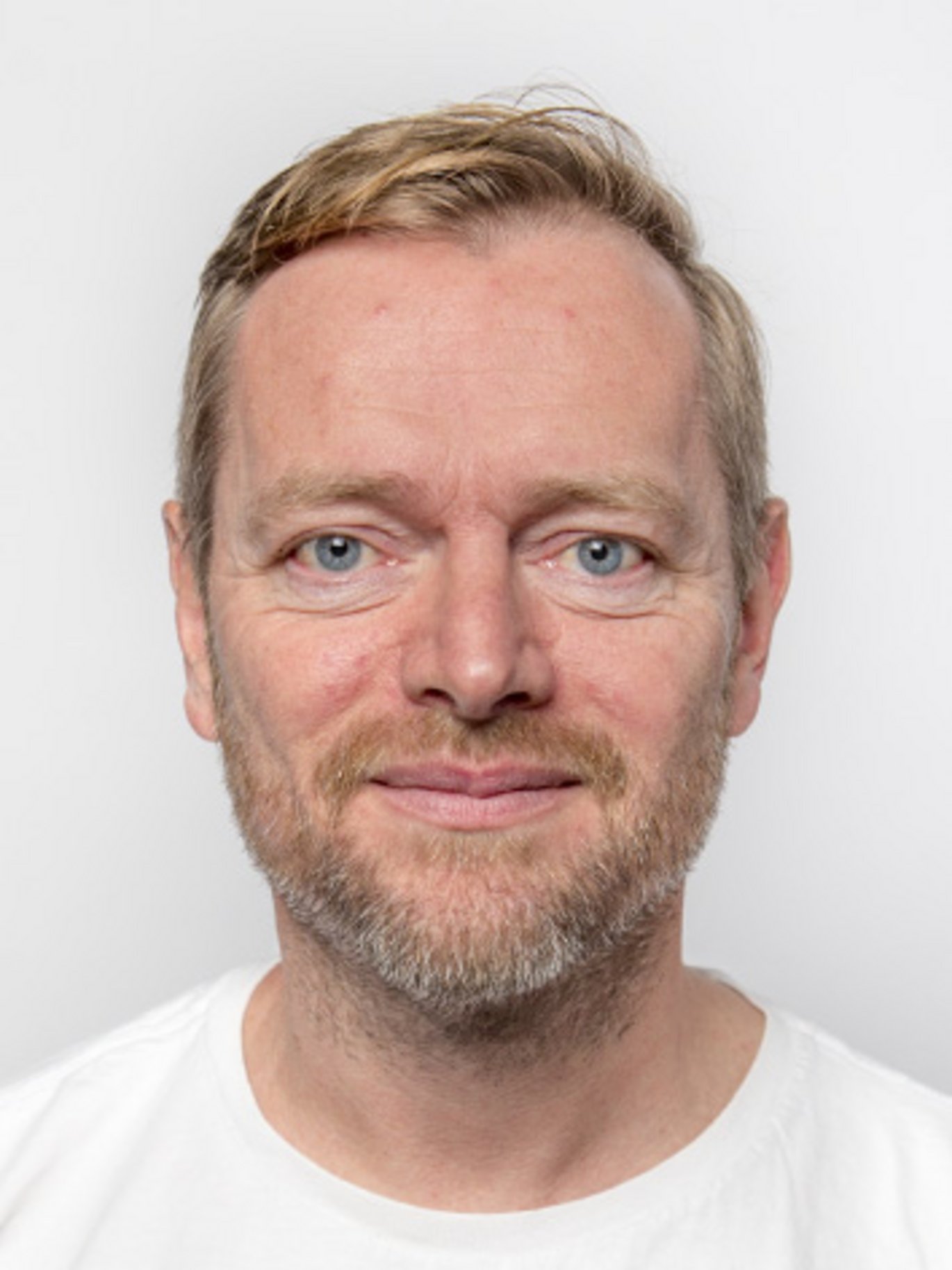Associate Professor and digital agricultural revolutionary aims to strengthen collaboration and sustainability
On October 1, 2023, Associate Professor René Gislum assumed the position of Section Leader for the CROP section at the Department of Agroecology at Aarhus University, succeeding Professor Per Kudsk. In an interview, he shares his journey from being an agronomy student to becoming Section Leader, his vision for the CROP section, and, most importantly, how technology and collaboration are the keys to shaping the future of not only agricultural research but perhaps the entire agricultural sector.

Robots, drones, and satellites fascinate René Gislum, who, throughout his research career, has had technology and digital agriculture as his guiding lights. Digital technologies are both the present and the future, and, according to the newly appointed section leader, they should assist us and the agricultural sector in achieving the numerous climate and environmental goals challenging the agricultural sector in Denmark as well as globally.
From agronomy student to Section Leader: a journey through a passion for plants and technology
René Gislum's passion for plants and agriculture began in his childhood. He grew up on a farm, and agriculture has always had a special place in his heart. Therefore, it was only natural that his journey into the world of research began as an agronomy student at the Royal Veterinary and Agricultural University in Frederiksberg.
"I may have initially envisioned becoming a crop consultant," René Gislum says. However, fate took a different turn when he got a volunteer job with Professor Birte Boelt, one of the research pioneers in the field. This experience opened the door to exciting research on seeds, plants, and nitrogen.
René Gislum's interest in numbers and measurement methods led to experiments with sensor measurements in the field and later the integration of drone technology. He also initiated collaboration with the University of Copenhagen to use Near Infrared Spectroscopy (NIR spectroscopy) for nitrogen analysis.
This marked the beginning of a career where technology and data analysis play a central role.
Technology and collaboration – a new direction for the CROP section
As the section leader, René Gislum has significant plans for the CROP section.
"I have noticed that traditional agricultural research has been pushed into the background in favour of climate, environment, and technology. I would like to change that by integrating technology more into research on plant diseases and weeds," he explains. He adds that he sees many opportunities for the section's future.
The new section leader has a particular passion for the future of the section, and that is collaboration.
"I'm thinking about collaboration with external partners, but especially within the department, between researchers from AU Viborg and Flakkebjerg. It will strengthen our ability to do interdisciplinary work to ensure the position of research and its impact on the industry and society," he says.
René Gislum highlights the growing interest in robots and data management as ideal areas of focus for the CROP section in a time when digital agriculture is gaining ground. He also believes that this will strengthen research collaboration both nationally and internationally. Because Denmark, as he puts it, is ahead of many other countries when it comes to climate and environmental issues.
"Therefore, we have the opportunity to test and implement new technological solutions earlier than elsewhere," he explains and continues: "This makes Danish research interesting for international partners who will ultimately be able to utilise technologies that have already been tested in real-world environments."
Generational change and coaching to shape future researchers
As a newly appointed leader, René Gislum is aware of the need to adapt to changes in the research environment and emphasises the importance of hiring skilled leaders who can provide support and, most importantly, coaching to their employees.
"We are in the midst of a generational change. Some of our most prominent researchers are ending their professional careers, and new talents are needed. Here, I think it's important that we, as leaders, understand how to adjust our leadership style to the new needs that arise when new talents come in," he says, noting that he has seen a greater need for coaching and support among his current PhD students than in the past.
"The level of expertise and willingness to work is the same, but there is a need for a different leadership style, and I think that is important if this generational change is to succeed. We need our PhD students and postdocs; they are the ones who will carry the legacy forward and elevate research to new heights," he explains.
National recognition and growth
René Gislum's dream for the CROP section is to achieve even greater recognition in agricultural research and to establish closer collaboration with researchers not only at AU Viborg but throughout the university where it makes sense. He believes this will strengthen the section and secure a stronger position for obtaining EU projects and collaborating with other institutions.
At the same time, René Gislum looks forward to harnessing the potential of new technologies, such as being able to measure phenotypes via drones and data collection. He is convinced that this will attract research projects and lead to growth for the CROP section and Aarhus University as a whole.
"I look forward to taking over from Per Kudsk, who has done a tremendous job as a leader and researcher. We will continue the good work and continue to develop the section and our research. Collaboration and technology are the key words," concludes the new section leader.
Additional Information
Learn about the CROP section here: https://agro.au.dk/forskning/sektioner/afgroedesundhed
Contact Section Leader René Gislum, Department of Agroecology, Aarhus University. Phone: 20542092 or email: rg@agro.au.dk.
